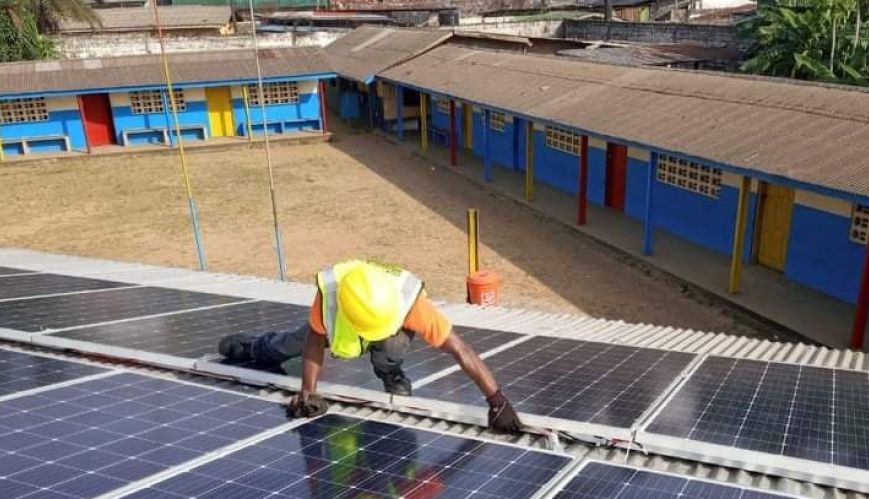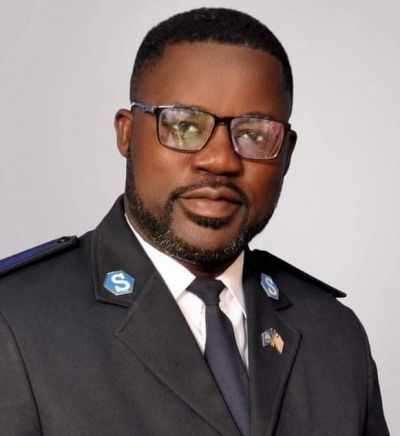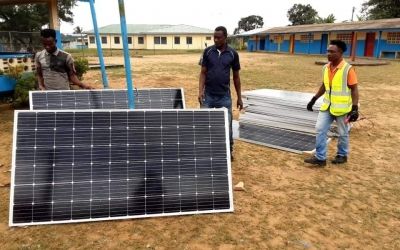Liberian schools power through electricity challenge

Liberian schools power through electricity challenge
Pedolo Kemokai, a solar technician, works on attaching solar panels to the roof at William Booth Primary School in Paynesville, Liberia, about 15km south of the capital Monrovia.
The electricity tariff in Liberia is one of the highest in the world, with many people across the country either unable to afford power or gain access to it.
 David Massaquoi, the Director of Education and Communications Officer at The Salvation Army Liberia and Sierra Leone Command.
David Massaquoi, the Director of Education and Communications Officer at The Salvation Army Liberia and Sierra Leone Command.
The civil war of 1999-2003 destroyed much of the country’s power infrastructure, and rebuilding the electricity grid has been a major challenge for the government.
The Salvation Army school system in Liberia, which was established in 1992, has been impacted by the lack of adequate public electricity.
David Massaquoi, Director of Education and Communications Officer at The Salvation Army Liberia and Sierra Leone Command, said “strategic thinking” and an “out of the box” approach was needed to find “an innovative solution”.
“The grid is currently unavailable in parts of [the capital] Monrovia and most places across the country,” he said. “A 2020 report indicates that the country has one of the lowest electricity access rates in the world – approximately 12 per cent. This means electricity in Liberia is very expensive and in most cases unavailable.”
The Army’s approach was to begin a solar energy project. Now, 12 months into the initiative and with funding from International Headquarters, systems have been installed and used at 11 of its primary and secondary schools across Liberia.
“The benefits are tremendously rewarding,” David said. “Our schools are enjoying 24 hours of uninterrupted power from the sun with a very huge reduction in our overall budgetary spending on electricity.
“Our electronic administration has improved, instructional activities are no longer interrupted by cloudy weather, and the security of our campuses are fast improving. More significantly, we are now contributing to reducing greenhouse gas emissions and helping to save the environment.
 Solar technicians, Evans Samah (left) Kelvin Dunor, and Pedolo Kemokai prepare solar panels on the grounds of the William Booth Compound to be hoisted onto the roof of the William Booth Primary School as part of The Salvation Army’s challenge to tackle a lack of electricity. “This is another significant investment into our education sector with very wonderful benefits to the globe. We are proud to be improving the quality of education in Liberia as well as contributing to saving our environment.”
Solar technicians, Evans Samah (left) Kelvin Dunor, and Pedolo Kemokai prepare solar panels on the grounds of the William Booth Compound to be hoisted onto the roof of the William Booth Primary School as part of The Salvation Army’s challenge to tackle a lack of electricity. “This is another significant investment into our education sector with very wonderful benefits to the globe. We are proud to be improving the quality of education in Liberia as well as contributing to saving our environment.”
Following on from the success of the solar energy project, David said the Command was looking at introducing “green computing” – the environmentally-friendly use of computers and their resources.
“We are currently working on a locally funded pilot project for rolling out thin client computer solutions [using a central server instead of a localised hard drive] in two of our secondary schools. As more funding is identified, we are hoping to cover our entire school system,” he said.